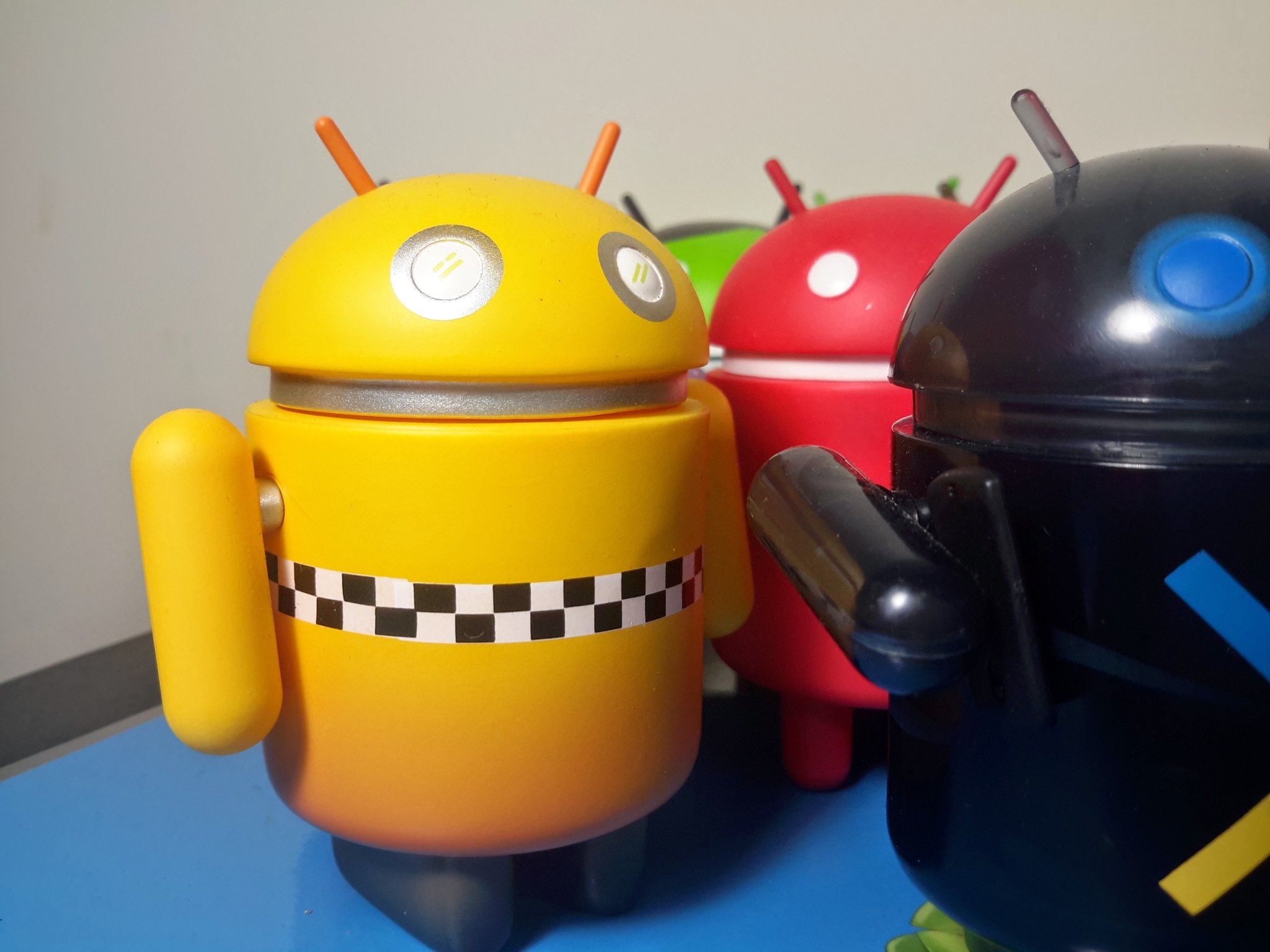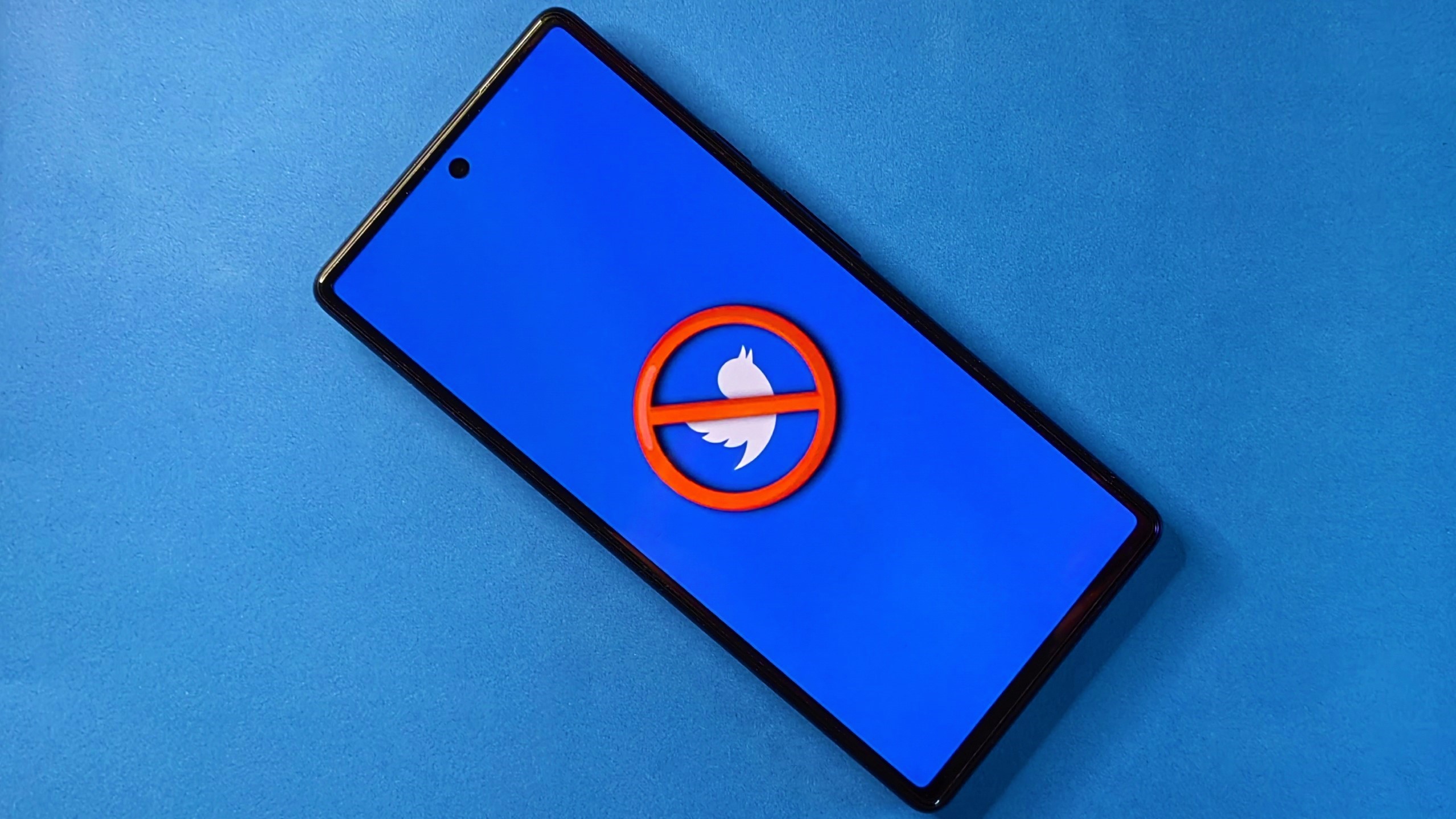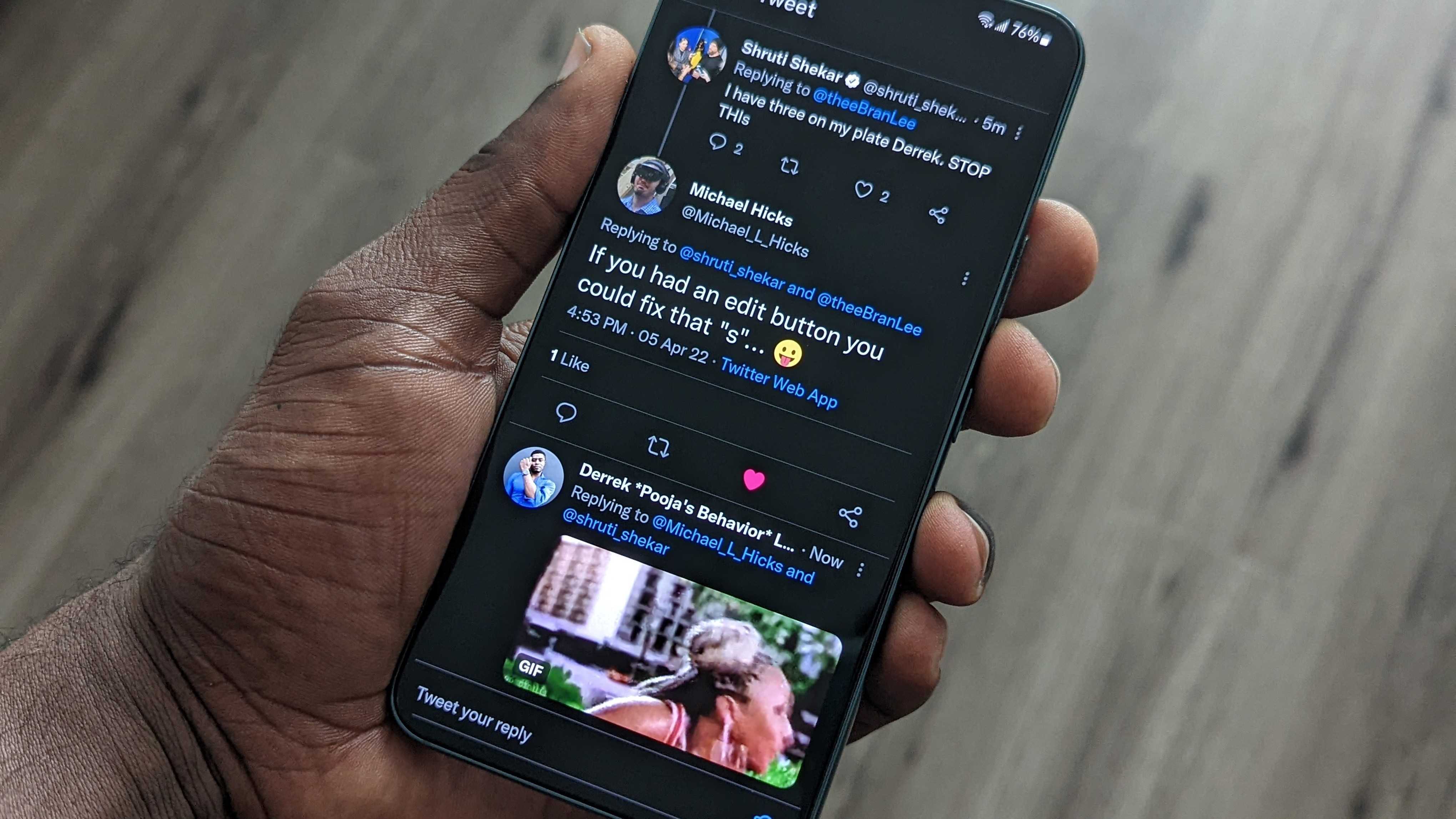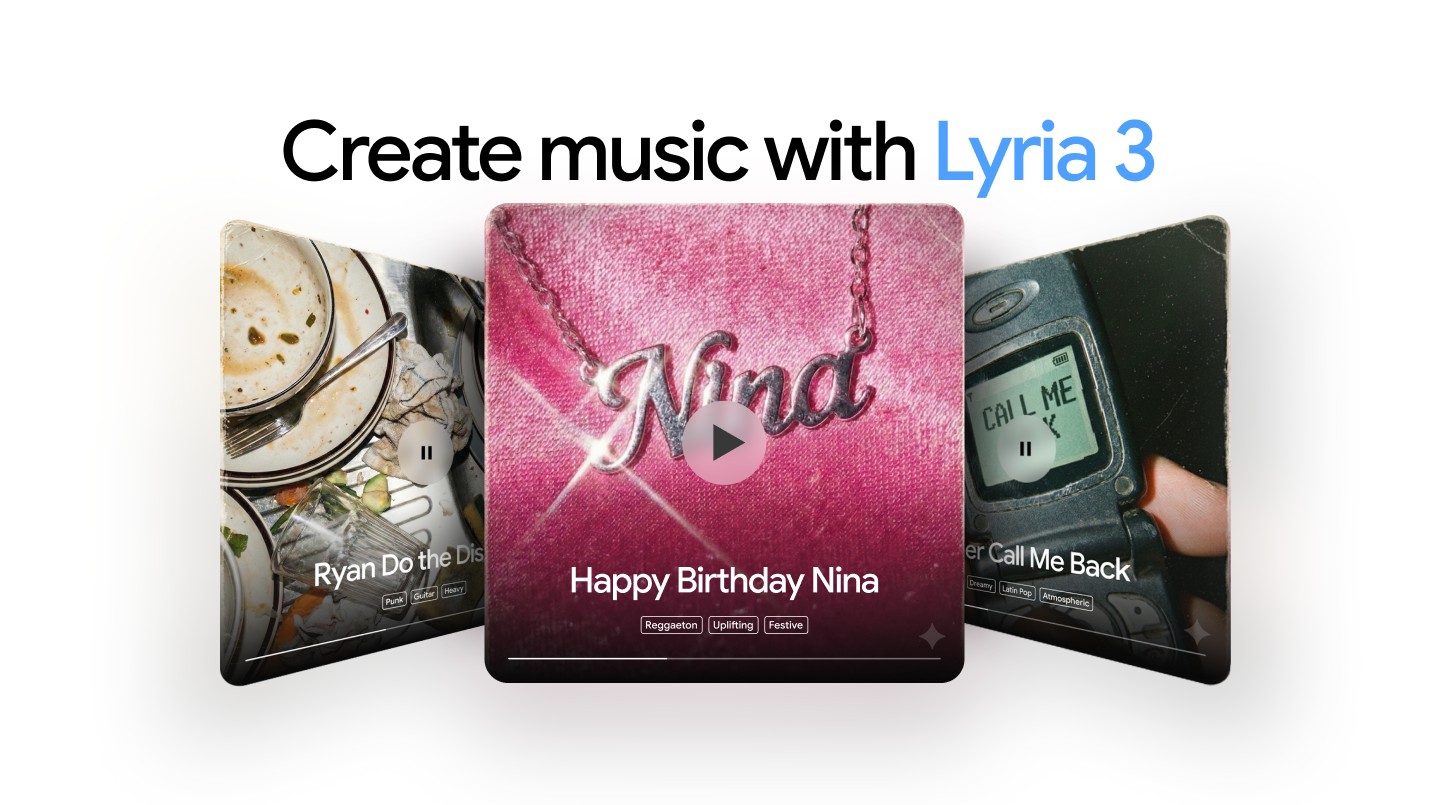What is free speech?
Free speech can't work on social media.

Get the latest news from Android Central, your trusted companion in the world of Android
You are now subscribed
Your newsletter sign-up was successful
I always try to take Saturday morning and spend some time talking about interesting or cool things that Android offers. Sometimes though, I drift away into something else. After reading way too many words about Elon Musk and Twitter, this is going to be one of those times.
I'm going to start by explaining a bit about what I think. I hate the idea of a complete division into two sides. Left/right, top/bottom, whatever. There is always room for a gray area in between and I think people that don't understand this are both unimaginative and unintelligent.
Every single person on this Earth deserves to be treated with love and respect. Every single person on this Earth also needs to do their best to try and help themselves and others. I don't believe in an afterlife, so I think we should all try to spend our time here being our best.
I yam what I yam.
Popeye the Sailor Man
Many will disagree with me and that's fine. I'm just saying this so you don't automatically label me as a "libtard" or a "right-wing nut-job" because that has happened far too many times when I talk about things that aren't Android.
So let's talk about free speech, what it means, and how it applies to a social media entity like Twitter.
Free speech means more than one thing

Free speech means something different to each and every one of us. For starters, what Elon Musk means when he claims he will bring free speech to Twitter has nothing to do with the protections offered to citizens of the U.S. under the Constitution and its amendments.
The first amendment does not apply here.
The first amendment applies more to Twitter the company than it does to you when you post something on Twitter. This is because the government can not infringe on your right to voice anything that's not actually harmful speech and Twitter is not the government. The U.S. Supreme Court has decided that this protection extends to corporate entities like Twitter, and that means the company can censor you at its discretion and the government can not interfere.
Get the latest news from Android Central, your trusted companion in the world of Android
Believe it or not, yelling fire in a crowded theater is protected under the first amendment, just like racial slurs and other speech that makes people uncomfortable. What's not covered in full under the first amendment is categorized into one of the following:
- Obscenity
- Fraud
- Child Pornography
- Speech "integral to illicit conduct"
- Speech that "incites imminent lawless action"
- Speech that violates intellectual property law
- Actual threats
- Commercial speech and advertisement
And none of this applies to anyone outside the United States nor does Twitter have to allow any speech that isn't covered by first amendment protections because of its own first amendment protection.
What Musk is referring to when he says "free speech" is that Twitter should stop censoring anything that isn't illegal. That means you would be allowed to say something that makes me uncomfortable (and vice versa) but you would not be allowed to do something like commit fraud or make an actual threat of physical harm.
What could this mean for Twitter?

Maybe this will mean nothing for Twitter. Musk is a ... complicated fellow that is obviously a genius but tries hard to act like a fool. That often makes a person seem lovable but sometimes if the foolishness is also distasteful it makes one look like, well, a jerk. For many people, Musk fits the latter definition, and that is why so many are up in arms.
Personally, I think nothing will change because Musk doesn't buy anything without a plan to make large amounts of cash. Twitter is a goldmine of private user data that was willingly given and there are many ways to monetize that data. Driving users away in large amounts isn't very conducive to that business model.
Twitter only exists to gather information about you and make money from that information, just like every other big tech company.
It's also going to be extremely difficult to work around the current laws on personal public speech around the world. The EU has its own set of rules, as does the U.K., but so does India, South Africa, and Brazil as well as many other countries and states. There is no one-size-fits-all solution.
But I get it. People are nervous when someone with Musk's reputation says "free speech" the way he says it. Just because I think everything will be business as usual doesn't mean those people are wrong — I'm wrong as often as I am right. This could be one of those times.
I've spent some time reading all the fuss and find that people are worried about a few specific things when it comes to a free-speech Twitter.
Misinformation is the biggest worry. There are legitimate fears that things like election or medical misinformation — actual and harmful misinformation like drinking your own urine as a cure for COVID or that Donald Trump won the 2020 election — could run rampant. Currently, these things will get your Twitter account suspended. Twitter has decided that instead of letting people refute those claims it would nip them in the bud because both have produced harmful outcomes.
Impersonation is also high on the list. Manipulating video and photos is trivial, even when it comes to producing "deepfakes" where a person is digitally placed into a video they had nothing to do with. People have also impersonated another on Twitter to defraud users or tarnish someone else's reputation. Free speech means these things are A-OK. If it turns out that fraud was committed or a reputation was tarnished, it's a matter for the courts. You're still allowed to legally do it in the U.S.
Speech doesn't have to be illegal to be distasteful or harmful to others.
Graphic and non-consensual nudity are other worries. Currently, Twitter doesn't allow content that depicts sexual violence or is "excessively gory" and neither of these things violates any laws. Non-consensual nudity and other intimate photos distributed without consent may break state laws, but in many areas, this is completely legal and would be covered under a totally "free" speech venture.
Promoting violence is yet another thing that people worry Twitter under Musk's free speech rules would allow. This could be true — for example, I am allowed to say that I wish some true patriot would murder a neighbor who mows the lawn too early on a Saturday morning. This breaks no laws. I am not allowed to say, however, that I actually plan on doing it or that I want you to get in your car, drive to my house, and do it for me. That is illegal speech and not allowed inside the U.S., where Twitter currently operates.
Free speech won't ever work on social media

Honestly, despite the concerns, I can't see much of this happening. Yes, some political figure you dislike may get his or her Twitter account reinstated. So what? It's trivial to block people who claim Jewish Space Lasers cause wildfires or anything else that's objectively stupid. Life is too short to worry about these people being allowed to act objectively stupid. And maybe someone out there doesn't think they are objectively stupid and wants to read about the lasers. If it becomes an actual problem, it can be dealt with accordingly by the right people.
But if enough people do care, the free speech of a person would be quickly taken away because social media companies can only exist if the herd approves of the message.
Twitter will always be forced to follow the wishes of the herd or risk the herd moving on to another pasture.
For a company like Twitter to be profitable it needs one thing more than any other: a large mass of users. Users to pay a subscription model, users to relinquish personal data, and users to promote and share the service so more users will come. One of the first things a lot of people do when they buy one of the best Android phones is install the Twitter app, and Twitter loves this idea.
If Twitter becomes too hostile to enough people and the numbers shrink below an acceptable level, the policy will change or the company won't stay afloat very long. Twitter, and any other social media company, is like a club and it only exists as long as members are there. We've seen what happens when someone tries to build out a new social media site, and everyone from Google to associates of former President Trump have tried and failed because the interest just isn't there.
Even if you're not paying with physical dollars, you can still vote with your wallet and your feet.

Jerry is an amateur woodworker and struggling shade tree mechanic. There's nothing he can't take apart, but many things he can't reassemble. You'll find him writing and speaking his loud opinion on Android Central and occasionally on Threads.
